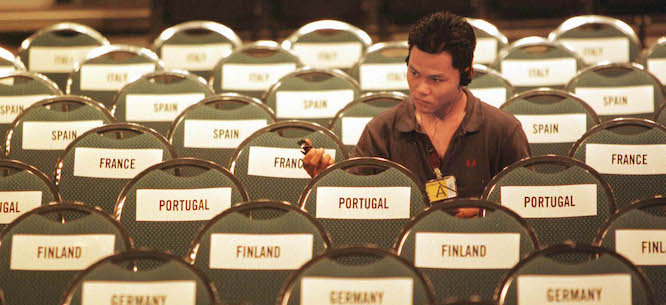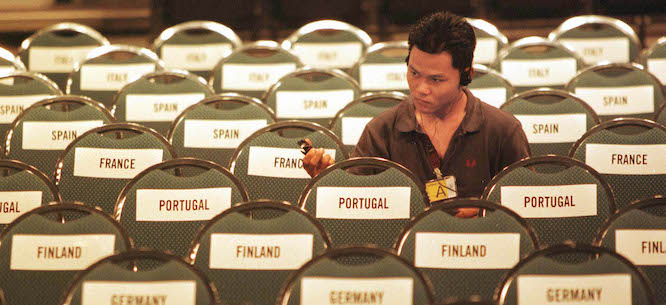A quarter-century ago, the multilateral system of global economic governance had reached its pinnacle. Today, the WTO, the IMF, and the World Bank are experiencing a deep crisis of legitimacy.

I still remember attending the first ministerial meeting of the World Trade Organization (WTO) in December 1996, a year after its founding. I did not know why known opponents of globalization like me had been invited; I suppose it was to inflict on us the lesson that it was futile to resist. An aura of triumphalism pervaded the meeting. Trade ministers and corporate executives alike proclaimed that globalization was the wave of the future. Government restrictions on the free flow of goods, services, and capital were a thing of the past. Within what skeptical observers like me termed the “blessed trinity of multilateralism,” there was a clear division of labor: the International Monetary Fund (IMF) would do away with barriers to capital flows, the World Bank would transform developing countries into free-market economies, and the WTO, which former Director General Mike Moore called the “crown jewel of multilateralism,” would lead the elimination of any remaining barriers to corporate-driven international trade.
A quarter-century ago, the multilateral system of global economic governance had reached its pinnacle. Today, the WTO, the IMF, and the World Bank are experiencing a deep crisis of legitimacy. This erosion of Western-led multilateralism has been accompanied by a debilitating political crisis in the hegemonic power underpinning the system, while the momentous shift of the center of capital global accumulation from the United States to China has only deepened. These developments open the possibility for a better future for the Global South.
The Birth of the New International Order
The IMF and the World Bank were founded at the historic Bretton Woods conference in 1944. They were supposed to be followed shortly by an International Trade Organization. But the 1948 Havana Charter, which set the parameters for the ITO, was not submitted for ratification to the U.S. Senate because the Truman administration did not feel it had the votes to overcome opposition from isolationist Republicans and U.S. corporate interests that were concerned about “protectionist concessions” to developing countries, which had attended the Havana meeting in greater numbers than the Bretton Woods conference four years earlier. With foreign trade constituting a relatively small part of the U.S. economy, Washington eventually settled for a much weaker system of regulation, the General Agreement on Tariffs and Trade (GATT).
Why did the United States change its mind a few decades later? By the 1980s, foreign markets had become much more important to American corporations, and it was important to smash barriers to entry, especially in developing countries. U.S. agribusiness complained about how these countries protected their agricultural sectors from cheap subsidized imports. Washington was also worried about countries in East Asi.


